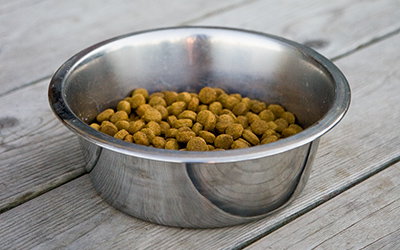Understanding Food-Associated Illness in Pets
Food-associated illness, commonly referred to as “food poisoning,” is relatively uncommon in pets compared to humans. Yet, it is crucial for pet owners to recognize the signs of food-related sickness and know the steps to take if they suspect their pet’s food has caused illness.
What Is Pet Food-Associated Illness?
Pet food-associated illness occurs when pets become sick due to an issue with their food. This differs from situations where a food is healthy but simply does not agree with a specific pet. It’s important to note that mismatches between pets and food are far more frequent than genuine food-related illnesses.
Categories of Food-Associated Illness
Food-associated illnesses in pets typically fall into three broad categories:
- Infections: Caused by ingestion of harmful bacteria (e.g., Salmonella), fungi, or other infectious agents, infections are most commonly seen with raw diets and uncooked treats.
- Toxins: These can be naturally occurring, like bacterial (e.g., botulism) or fungal toxins (e.g., aflatoxin), or the result of human error such as excessive nutrient levels. In rare cases, intentional adulteration has occurred, as seen in the melamine contamination scandals of 2007.
- Deficiencies: Rare in high-quality commercial pet foods, deficiencies may arise due to quality control issues at specific manufacturers or when essential nutrients are lacking.
While some pets may simply not tolerate certain foods—potentially due to high fat content, inadequate fiber, or specific ingredients that upset their digestion—this does not necessarily indicate a problem with the food itself.
When to Be Concerned About Food-Associated Illness
Pet owners should maintain a heightened awareness for signs of food-associated illnesses under the following circumstances:
- Multiple pets in the household suddenly fall ill after consuming the same food or treats.
- Previously healthy pets exhibit sudden, severe liver or kidney disease.
- A pet that usually has a good appetite suddenly loses interest in food.
- A pet displays symptoms of illness after eating from a newly opened bag or can.
- The food or treat being fed has been recalled due to bacteria or nutrient imbalances.
What to Do If You Suspect Pet Food-Associated Illness
If you suspect that your pet’s food has led to illness, the first step is to discontinue feeding that food immediately. Take your pet to a veterinarian for assessment, where they may conduct blood or urine tests to identify the cause of the illness.
In cases where food-associated illness is a possibility, keep samples of the food for testing. Pet owners are also encouraged to check the FDA’s website for any related reports or alerts regarding the food in question. To assist with future recall notifications, consider subscribing to the FDA recall email alerts.
When saved, the original food packaging is vital, as it contains key identifiers like UPC and lot codes necessary for tracking potential problems. Reports should be made to both the pet food manufacturer and the FDA, allowing both entities to investigate the issue further. If you are asked to provide food samples for testing, ensure you retain some for potential analysis elsewhere.
Conclusion
While food-associated illnesses in pets are rare, being vigilant and aware of the signs can lead to quicker treatment should your pet become affected. By promptly reporting any issues to the appropriate authorities, pet owners can play a crucial role in preventing similar incidents in other pets. The health and well-being of your pet depend on your proactive engagement with their nutrition and health concerns.











